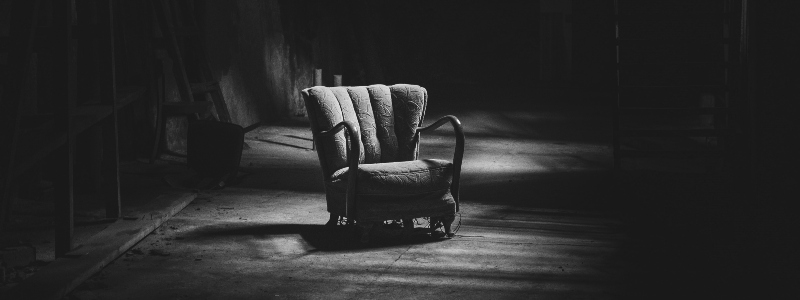Non-violent resistance (NVR) is a hugely effective, forward-looking and relational approach which helps parents to un pick what is happening in the family, to begin to recognise and disrupt entrenched patterns of interaction and to break down the barriers which stand in the way of change. In so doing, parents, who might start the work feeling lost and depleted, powerless and helpless against destructive dynamics which threaten the stability of their family, are able to regain their parental strength. The approach focuses on supporting parents to develop narratives and impactful methods of resistance, and to align themselves alongside their child while encouraging them to get back in touch with their own boundaries, wants, needs and wishes – alongside recognising those of their children.
Fundamental principles within the approach of ‘presence’, ‘resistance’ and ‘community support’, provide an over-arching structure, which enables the exploration of the complexities of behaviours such as violence, aggression, control and coercion which challenge family systems.
Below is an extract of a reflective summary provided by a mother to a fifteen-year-old son, J, who frequently displayed significant violence towards his parents and siblings. J was diagnosed with ADHD at age twelve. The parents completed a short-term intervention of NVR support. Her summary highlights some of the reticence experienced by parents in considering starting to work with NVR, and of the challenges encountered along the way:
“As you know I was sceptical to say the least when a friend recommended my husband and I start a program of NVR. In fact, I was actually pretty annoyed, as if silently and subtly they were suggesting that our parenting wasn’t somehow good enough. Despite this though I did reach out, maybe because things were feeling so unbelievably broken and I felt like I had tried so much that just wasn’t working. I felt really anxious about coming to the first session and even started typing an email to cancel but my husband was determined we had to give it a go. I tried to read up a bit about the approach before we came in. In my mind though I think really I was getting ready to defend myself and to assure myself, my husband, my friend (and you) that we really didn’t need to do this work, that it was J who needed to see someone, not us, whilst at the same time also feeling desperate that my friend was right and that this could actually help.
What I liked instantly about the work was that you challenged us to look forwards. We’d been stuck as a family for a very long time, and I was feeling exhausted, angry, devastated, hopeless, helpless – completely lost. I think we look back on that time as very dark days and so it feels great to be writing this from a place which honestly feels so much lighter, brighter and optimistic – all things actually that I think we agreed when we first started talking about what we were striving for.
I remember feeling from that initial consultation ‘wow someone actually gets this’ because the way you summarised things from your experiences with other families really resonated with me. You asked in the first session what I was striving for, and I liked that some of this focus was framed about me – as just me – as well as around me as Mum to J, me as part of a couple with my husband, me as Mum to my other children and for us as a family, and likewise for my husband. In just that first session we began to recognise that because of all the awful behaviour that J was showing at home we were living in a state of chaos and panic. We had neglected our care of ourselves and lost each other as a couple – and I could see that its hardly a surprise that it was so hard to resist the violence when we were feeling so lost and so broken ourselves. I liked the way we explored what we want things to be like.
Just allowing ourselves to imagine a different future helped to begin to move us out of the hopelessness. We reflected on what family life had become for us and we considered some of the things that stopped things moving forwards. It’s lucky we always had a box of tissues in the room because I remember doing a lot of crying in some of those first weeks – and I remember joking with you mid-way through the work that the fact I wasn’t in tears was a good sign of the progress we were making! There seemed somehow a real simplicity in breaking down our experiences and exploring the NVR themes within the sessions. We had a structure around us, that we were able to take away and begin to test out at home. As we began to move deeper into the work together and explore all the different principles within NVR, I could feel it really starting to bed into my thinking and it started to come more naturally to me at home. At first, I remember it feeling quite clunky, and some of it even jarring as it turned some of what we’d been doing on its head, as part of what you described as disrupting the status quo. I liked that we could lean back on the idea that those elements were where we could get our power back as parents and to really begin to get things back on track for our family.
We reflected a lot on the community around our family and I can definitely say at this point I am so thankful to my friend for suggesting this approach. She has been absolutely alongside us, and J, and because she didn’t stay as a quiet bystander to our struggles we are now in an unrecognisable place as a family. Finding the courage to open up our world and let other people in was by far one of the hardest elements of the approach – we had worked so hard to batten down the hatches, to stay compliant to the secrecy and to shield ourselves, J and others from people knowing how bad things were, that the idea of reaching out to others for help felt really scary for lots of different reasons – but this was impactful in so many different ways.
It has definitely been a journey – and we are very aware we have to keep working at the relationship, but it feels easier, and J gives back in so many different ways now that it all just feels very different from where we started. J is now back in college and smokes a lot less weed. We were belly-laughing together last week about something silly, and he even told me about his new girlfriend yesterday. It feels so special to be allowed in… and as you know the violence has stopped. We see J working really hard to control his behaviour – obviously he still gets very cross at times, but it feels like we’re all invested in doing what we can to resolve conflict in new ways together.”
NVR is an approach which can lead to transformation and enduring change within families.
With its focus on relational balance and principles of resistance it is a suitable approach for supporting families with children of all ages. In my practice I have worked with parents of toddlers, young children, teens and adolescents right through to parents of adult children who may not even live in the same home any longer. It is an individualised approach, centred around the needs of all the individuals within the family, recognising it cannot be a one-size-fits-all approach. As such the approach is effective for supporting children and/or parents with neurodivergence.
Georgie Leake is an NVR UK accredited advanced level NVR practitioner and holds a BSc (Hons) in Psychology, a Master of Education (Special Needs and Inclusive Education), a Master of Arts in Social Sciences and QTLS. Georgie is available at our Brighton & Hove Practice, Lewes Practice and Online.





